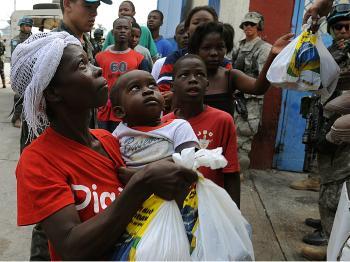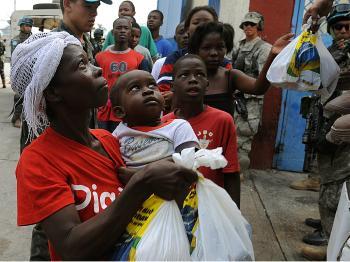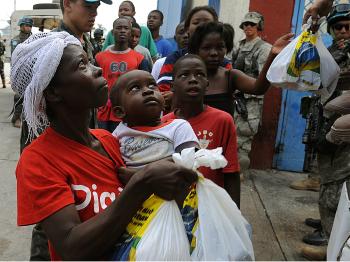Psychologist Brings Calm to Haiti Chaos
Mental health experts believe Haiti earthquake survivors face long-term challenges and need special help coping with the psychological trauma.

Haitians are given aid at a distribution point at the national stadium in Port-au-Prince on Jan. 31, 2010. Mental health experts feel that material aid is not enough and that quake victims will need long-term help coping with the trauma. Thony Belizaire/AFP/Getty Images
|Updated:





